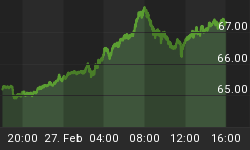By the time you read this you will have been over-exposed to the news that yesterday Fed Chair Bernanke announced further U.S. 'quantitative easing' without a stated end-date. Mr. Bernanke announced the U.S. Federal reserve will purchase up to U.S.$40 billion of mortgage-backed securities each and every month until it saw 'a sustained upturn in the weak U.S. jobs market'.
Say what you will, from my perspective for any such a plan to succeed:
-
I have to be wrong that the United States suffers from structural unemployment, as I believe that the greater is U.S. structural unemployment, the less is the probability of meaningful U.S. job creation in the next 27 months - and, of course, vice versa;
-
I have to be wrong that manufacturing jobs are more important to economic growth than are service jobs, as I do not believe that as a consequence of globalization and loss of U.S. manufacturing jobs the U.S. will be able to create enough 'average-pay' service jobs to bring the U.S. unemployment rate down significantly from current levels over the next 27 months, particularly as the U.S. population grows over that period; and,
-
I believe the only way it is likely for the U.S. employment rate to be as low as 7% by the end of 2014 (see following) is if the U.S. Federal Government, pursuant to bipartisan agreement, in the next few months finds funding for Federal Government sponsored infrastructure programs, and quickly overrides the views of vocal minorities to enable large energy projects such as the Keystone Pipeline project to go ahead.
Following from introduction of this new quantitative easing, the Fed has reduced its expectation of year-end 2014 unemployment to (at the mid-points) 7.0% from the 7.35% estimate it made in June. Consider:
-
that it is (not including this current month) 27 months to and including December 2014. Assuming no changes to this new quantitative easing and that it extends to that date, the new Federal Reserve expenditure will total just under U.S.$1.1 trillion by the end of 2014; and,
-
what is going on in the world generally (witness the current maelstrom in North Africa and the Middle East, and the many other societal problems that seem to appear with more regularity every month), and among other 'economic things':
-
the world economy generally,
-
the Eurozone financial crisis,
-
the increasing concerns over further slowdown in China's economic growth,
-
the economic uncertainty of the U.S.,
-
United Kingdom economic recession and uncertainty,
-
ongoing globalization generally; and,
-
what seems to be the economic unpredictability of globalization as it evolves.
-
After considering the foregoing, I suggest you:
-
determine what odds you would give that any prediction made today of one country-specific economic statistic at December 2014 will prove to be accurate;
-
consider how much of your wealth you would bet on such a thing; and
-
consider whether all of this is something worth discussing with your investment advisor.
For me any prediction for a specific U.S. economic statistic forecast today for December 2014 invokes a vision of a man pulling his car over to the side of the road, unzipping his fly, and facing squarely into the 'proverbial breeze' as he goes about his business.
Topical Reference: Fed bets big in new push to rescue economy, from Reuters, Pedro da Costa and Allister Bull, September 13, 2012 - reading time 4 minutes, thinking time longer.















